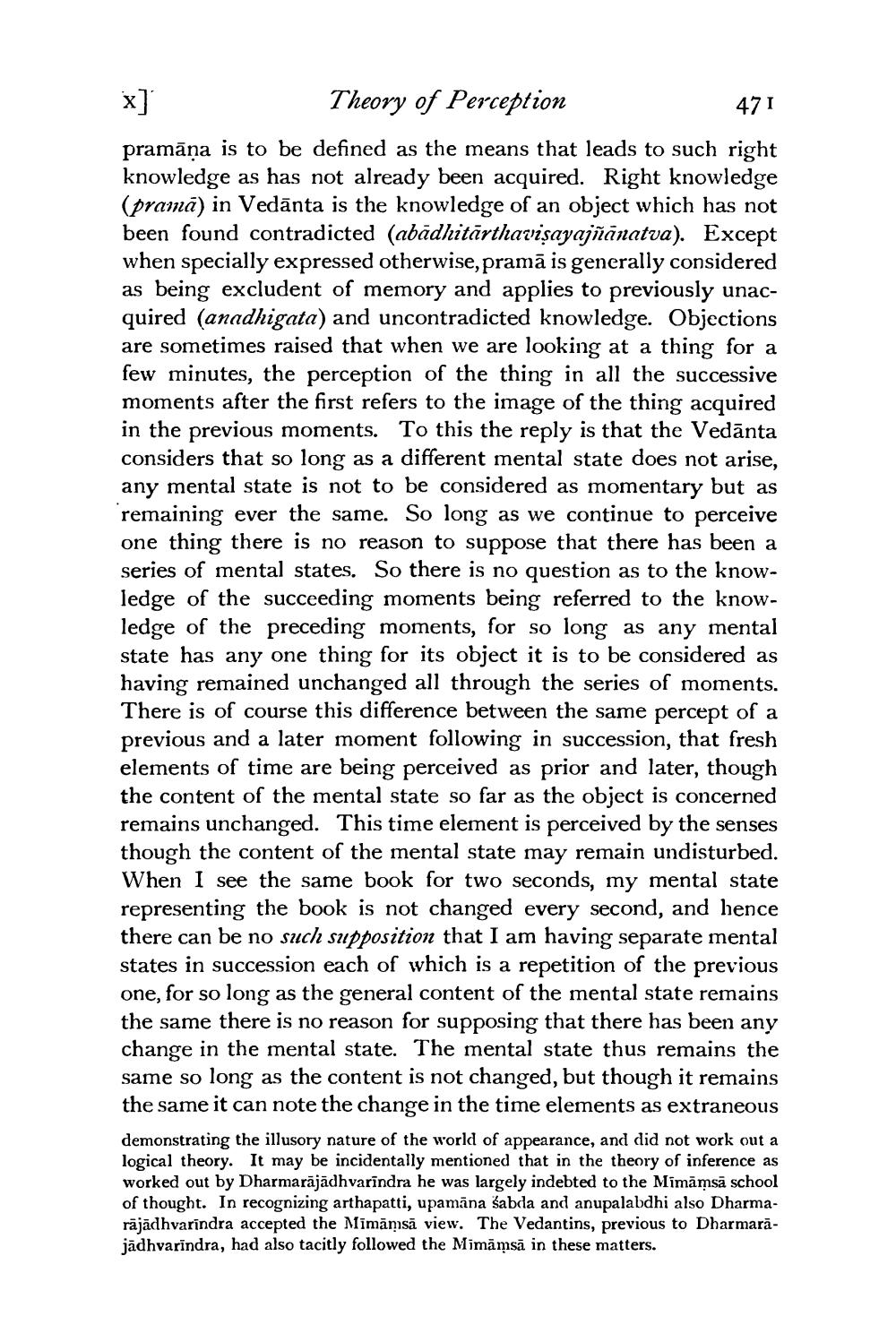________________
Theory of Perception
471
pramāna is to be defined as the means that leads to such right knowledge as has not already been acquired. Right knowledge (pramā) in Vedānta is the knowledge of an object which has not been found contradicted (abādhitārthavisayajñānatva). Except when specially expressed otherwise, pramā is generally considered as being excludent of memory and applies to previously unacquired (anadhigata) and uncontradicted knowledge. Objections are sometimes raised that when we are looking at a thing for a few minutes, the perception of the thing in all the successive moments after the first refers to the image of the thing acquired in the previous moments. To this the reply is that the Vedānta considers that so long as a different mental state does not arise, any mental state is not to be considered as momentary but as remaining ever the same. So long as we continue to perceive one thing there is no reason to suppose that there has been a series of mental states. So there is no question as to the knowledge of the succeeding moments being referred to the knowledge of the preceding moments, for so long as any mental state has any one thing for its object it is to be considered as having remained unchanged all through the series of moments. There is of course this difference between the same percept of a previous and a later moment following in succession, that fresh elements of time are being perceived as prior and later, though the content of the mental state so far as the object is concerned remains unchanged. This time element is perceived by the senses though the content of the mental state may remain undisturbed. When I see the same book for two seconds, my mental state representing the book is not changed every second, and hence there can be no such supposition that I am having separate mental states in succession each of which is a repetition of the previous one, for so long as the general content of the mental state remains the same there is no reason for supposing that there has been any change in the mental state. The mental state thus remains the same so long as the content is not changed, but though it remains the same it can note the change in the time elements as extraneous demonstrating the illusory nature of the world of appearance, and did not work out a logical theory. It may be incidentally mentioned that in the theory of inference as worked out by Dharmarājādhvarindra he was largely indebted to the Mimāmsă school of thought. In recognizing arthapatti, upamāna sabda and anupalabdhi also Dharmarājādhvarindra accepted the Mimāmsā view. The Vedantins, previous to Dharmarajādhvarindra, had also tacitly followed the Mimāmsā in these matters.




